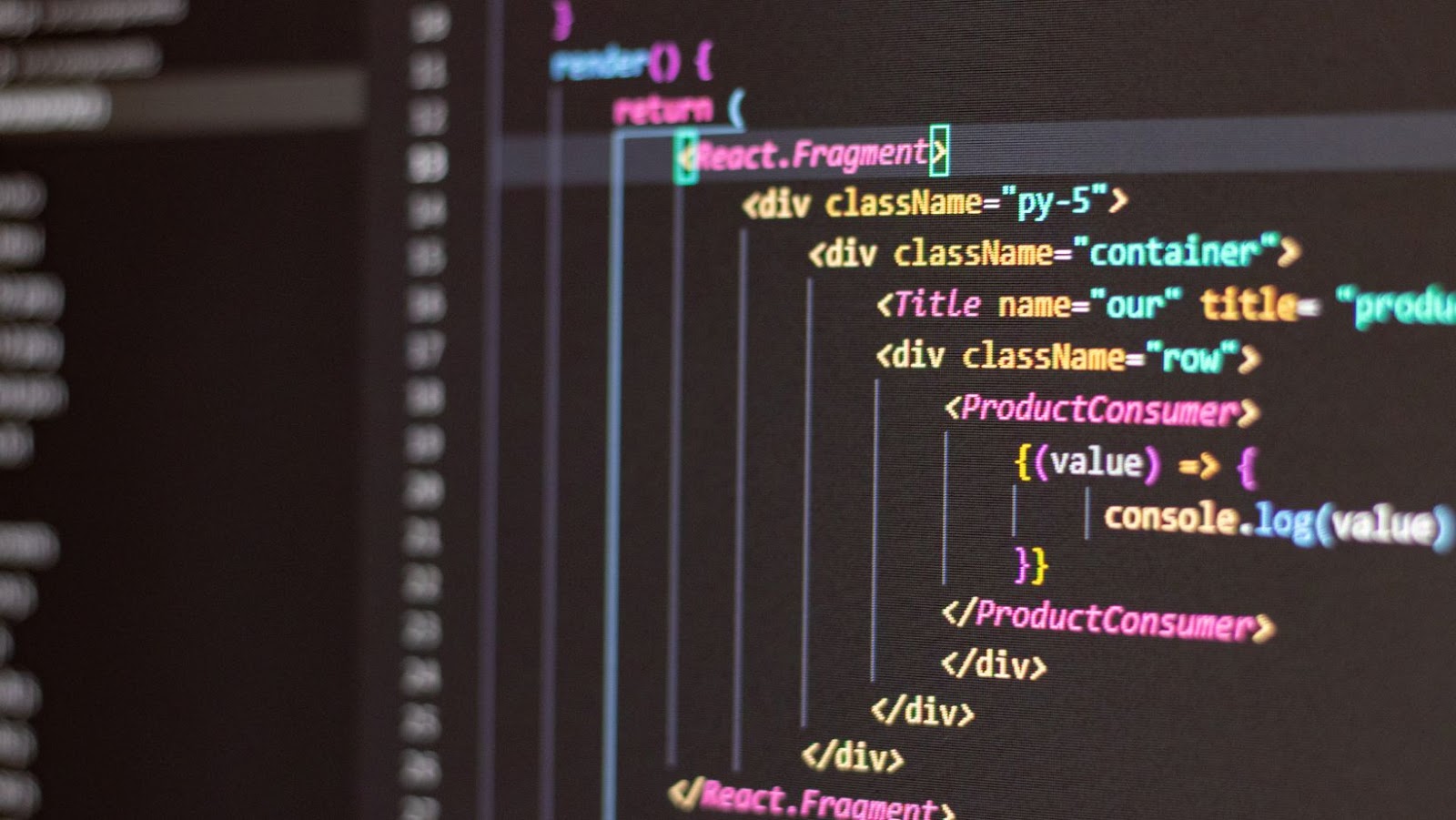
Learning a programming language like Java can help you unlock professional opportunities in software engineering and other related fields. Java is one of the most popular languages and has been used for decades by developers.
This article will explore how long it takes to learn Java and the best way to learn it.
What is Java?
Java is an object-oriented programming language and computing platform first released by Sun Microsystems in 1995. It enables developers to build applications and programs that can be used on a single computer or distributed among servers and clients in a network.
Since its original release, the Java language has proven to be one of the most reliable, robust, and dynamic languages used in software development today. It is widely used by both individual programmers and corporate IT departments to create secure and reliable applications with a broad range of features that can span across various operating systems, networks, mobile devices, web browsers, and more.
Whether you’re a seasoned programmer looking to brush up on your skillset or someone who has never written code before but is interested in learning Java as part of their career prospects, there are numerous resources available for those who want to learn how to use this powerful programming language.
Benefits of Learning Java
Learning Java can be a great way to develop technical skills that are highly sought-after in the job market. It’s one of the most popular programming languages in the world and offers many advantages for developers. Here are some of the key benefits of learning Java:
- Cross-Platform – Java is designed to work across multiple platforms from smartphones to desktop computers without any extra effort, allowing you to write code that runs on any device.
- Scalability – Java can easily scale up or down, depending on how complex your application is. This makes it ideal for large projects where data volumes can vary throughout development and deployment.
- Ease of Use – Unlike other languages, Java is object-oriented and versatile, making it easier for coders to read and understand their own code quickly. It also has excellent debugging capabilities built-in that allow coders to fix bugs efficiently before launching a working version.
- Security – Java features built-in security features such as sandboxing which isolate application code from other applications running on the same computer or server, reducing the chances of data leakage or unauthorized manipulation of your program’s resources.
These benefits make learning how to code in Java a valuable skill that can open up new career options and help experienced developers tackle more complex tasks with ease.
Learning Options
Learning Java can be a great way to gain an invaluable skillset in programming and coding. Depending on your goals and background, there are a few different ways to go about learning Java. For example, if you are just getting started, online tutorials, online classes, and traditional college courses are all options you can choose from.
Let’s explore what the best way to learn Java is and how long it will take:
Self-learning
Java may be one of the most popular programming languages, but it can still be intimidating for those new to the field. If you’re trying to figure out how to best learn this powerful language, self-learning is a great place to start.
Self-learning is a great way to learn Java without having to spend money on teacher or courses. With so much online content available, from tutorials and courses to blog posts and forums, there’s no shortage of ways you can educate yourself about the language – if you’re willing to look for them.
One way you could go about this is by using online courses specifically focused on teaching Java. You can find many options for teach-yourself courses that will guide you through the basics of Java and then provide more complex challenges as your skill level grows. You just need an internet connection and some dedication!
Another method would be to look for resources that cover key topics in depth such as specialized books like “Thinking in Java”. Since books focus on depth rather than breadth they are more suitable if you have some prior experience with coding or programming but want to take it further. Additionally, you may want to invest in a good tutorial video series like “Learn Java Project Challenges” that focuses on strengthening your understanding while honing your skills simultaneously.
You could also make use open source materials available online. Just by searching the internet, one can find free access to ebooks, blogs, discussion boards etc which all provide different perspectives and opinions that help expand one’s technical knowledge about the language quickly and efficiently over time – provided discipline and effort is put forth!
All in all, whatever avenue of learning (whether paid or free) is chosen; self-learning can be a great option if done properly – with dedication, determination and discipline – as it helps one cater their own learning pace without much hassle or additional cost attached.
Online Courses
Online courses can be immensely helpful if you are looking to learn the fundamentals of Java quickly and effectively. They provide an easy-to-follow, structured curriculum that can be accessed through a variety of online platforms.
Not only are online courses great for quickly learning the basics, they can also provide additional course materials and resources such as tutorials, cheat sheets, educational videos, and practice questions to assist with your learning process. They also typically provide instructors who are available to answer any questions or address any issues you may have in understanding a concept or solving a problem.
Online courses can be taken at your own pace, either from the comfort of your home or on the go from your laptop or smartphone. This type of learning provides great flexibility for any type of learner—from the novice user to the experienced programmer.

Bootcamps
Bootcamps are a great way for learners to accelerate their programming skills and master a specific language in an immersive environment that often culminates in job placement. The structured curriculum is designed to equip students with the tools they need to become job-ready, such as coding challenges and projects, mock interviews, career advice, and hands-on learning under the guidance of experienced mentors or instructors. Bootcamp courses usually last between three and six months. Depending on the program, they can be either online or conducted in a physical classroom setting.
When it comes to learning Java specifically, some of the top bootcamps offer courses like “Advanced Java Programming” or “JavaScript for Web Development”. These programs bundle together everything needed for mastering Java: from individualized instruction to mentorship opportunities and more. Many bootcamps even provide support services such as job placement assistance after graduation.
Mentorship
Mentorship is an important part of learning, especially when it comes to programming languages like Java. Working with a knowledgeable mentor can help you develop the specific skills necessary for coding, such as algorithm design and debugging. Mentorship is even more valuable when pairing it with coursework, providing students access to real-world projects, the latest best practices, and direct feedback and support from experienced professionals.
Not only does mentorship allow for formalized guidance from experienced mentors, it also provides unique learning opportunities that are challenging but rewarding when successful. Through a mentoring program, learners gain exposure to different topics within Java by coupling theoretical teaching with contextual practice scenarios. Mentors can offer invaluable advice on coding challenges not necessarily taught in classes. By discussing and working through difficult concepts within the language in real time rather than independently all learners can benefit from mentors’ deep technical knowledge of the language.
Additionally, having a mentor boost confidence within learners by providing valuable feedback on their progress which aids them in troubleshooting problems they encounter while coding or simply understanding the fundamentals of programming. Simply put the mentor’s experience becomes instrumental in teaching aspiring developers how to handle any potential roadblocks during development with patience and forethought. Indeed one of the greatest benefits mentors provide is their motivating presence throughout the entire process.
Learning Resources
If you’re interested in learning Java, there are many resources available to you. From online tutorials and courses to in-person classes and bootcamps, there are so many avenues to get up to speed with this popular coding language. It can take anywhere from a few weeks to several months to learn Java, depending on your background and experience levels.
In this section, let’s explore some of the best ways to learn Java:
Books
Books can be a great way to learn Java, as they tend to provide detailed explanations of Java’s language syntax and key concepts. There are many excellent books on the market that are designed to help a beginner learn Java from scratch. Several titles are often recommended for learning the fundamentals of the language, such as Head First Java by Kathy Sierra and Bert Bates, and The Java Tutorial by Sharon Biocca Zakhour and Srihari Sankaran.
Additionally, there are plenty of more advanced guides which can help with developing application using Swing components or using object-oriented programming principles with Java. No matter what level you are at, there is a book that can help you strengthen your understanding of this powerful language.
Video Tutorials
Video tutorials can be an excellent way to introduce yourself to the concepts and syntax of Java. A great thing about video tutorials compared to other learning resources is that visual learners often find them more appealing and easier to understand. While watching the videos, you can learn at your own pace, skip over sections that you understand and restart sections that you still need more help with. Video tutorials also allow for a conversational style of teaching, which makes comprehension a lot easier than reading from textbooks or manuals.
With the growing number of online video tutorial libraries, there are plenty of great options when it comes to learning Java. Popular services such as Lynda and Udemy offer numerous courses designed to help beginners start coding quickly and efficiently. These services have experienced tutors who not only teach in an easy-to-understand way but also take the time to ensure that each step is properly explained and understood before moving on. If you are looking for free methods of learning, there are also plenty of resources available on Youtube where professional developers have recorded their own lessons and courses on Java.
In addition to these video tutorials, there are many other great learning resources available online including:
- Online forums where experienced coders answer questions
- Interactive coding challenges where you practice skills without instruction
- Ebooks which explore different aspects of programming in more depth
- Interactive apps which allow for a complete introduction into coding remotely from any device with an internet connection
Ultimately it is up to each individual learner what type of resource works best for them but one thing is certain: no matter what your budget or your level of experience may be there will always be a way for you to get started with Java programming!
Online Communities
Online communities can be an invaluable resource to aspiring Java developers. Online forums and chatrooms such as Stack Overflow, Dev.to, Slack, Reddit, and Codecademy are full of passionate and knowledgeable people eager to answer questions and help new members with everything from basics to best practices in coding.
Often these groups organize meet-ups where you can network with other like-minded people in the industry, while getting code analysis and critiques along the way. By joining a supportive community like this you’ll not only make valuable lifelong relationships but will also gain a wealth of insight into current web development trends. Additionally, communities often contain job postings for immediate openings in certain markets or for remote positions – perfect for those just starting out or looking for specialized skillsets.
Find the community that works best for you and jump in!

Tips for Learning Java
Learning Java can be a daunting task, but it is a useful language to know. With the right approach, you can quickly become proficient in Java. How long it takes to learn Java will depend on a few factors, such as your existing programming experience, the amount of time and effort you put into studying, and the methods you use to learn.
In the following article, we will give you some tips for learning Java and discuss the different approaches you can take:
- Understand the fundamentals
- Practice coding
- Work on projects
- Find a mentor
- Take online courses
Set Realistic Goals
When you’re first getting started with learning Java, it’s important to set realistic goals based on your skills and the amount of time you can dedicate to studying. If you have limited programming experience, break down larger projects into smaller tasks and pursue one at a time. Doing so will help you build your coding skills gradually instead of becoming overwhelmed by more complex material.
It can also be helpful to break larger projects into sections so you can focus on manageable goals each week or month. For example, if your ultimate goal is an app that requires the use of user input, GUI components and algorithm complexity, prioritize each one and then focus on completing smaller sections until the project is finished.
In addition to setting realistic goals for yourself, it can also be useful to track your progress along the way by utilizing resources such as tutorials or online class texts. Scheduling tests at regular intervals will give you an indication of how well you’re understanding and retaining what’s been covered so far. This will allow for any gaps in comprehension or knowledge levels to be addressed before they become overwhelming obstacles in succeeding chapters or courses.
Practice, Practice, Practice
One of the most important parts of learning a new programming language is committing to practice and staying consistent. The best way to learn Java is to set a goal of learning small building blocks each day, like mastering syntax, classes, objects, and methods. Practicing regularly on projects that use Java will help you pick up the language’s features faster and more easily retain the information.
In addition to practicing the basics which are important for any programming language, it’s also important to take time to practice problem-solving skills. Writing code is an art form – in addition to having expertise with the syntax and functions of Java – you also need to be good at troubleshooting and debugging errors in your code. To do this successfully, it’s beneficial to have an understanding of advanced topics like data structures and algorithms because they provide powerful tools with which you can solve problems quickly and efficiently.
Other techniques that can be used include:
- Participating in online coding challenges which often help you understand topics from different angles.
- Teaching others what you have learned as teaching is known for reinforcing your existing understanding – but make sure what you are teaching is accurate!
- Finding online resources such as StackOverflow or Java forums are great sources for getting assistance when needed.
Finally don’t let yourself feel overwhelmed; stay positive and motivated as this will increase your chances of gaining proficiency in Java much quicker!
Take Breaks
Taking breaks is a crucial part of effectively learning Java. When starting to learn a subject like Java, it is easy to become overwhelmed with the sheer volume of information you are trying to absorb. Taking regular study breaks can help you keep your progress focused and provide an opportunity for your mind to relax and process what you have already learned. It is important to not take these breaks too often as they can break up the consistency needed for proactive retention. Experienced learners recommend taking 5-10 minute breaks every 20-30 minutes if you are feeling fatigued or mentally exhausted by the material.
These short breaks should provide an opportunity for you to move around, do something else for a short amount of time and come back with a renewed focus. Often times this change in activity can be enough to offer clarity when attempting difficult problems in programming.
Different people prefer varying activities during their break such as:
- Taking a walk outdoors
- Playing solitaire
- Checking social media networks
However you choose to take your break make sure it is beneficial and allow yourself sometime away from studying Java so that when you come back, your brain is refreshed and ready to learn more!
Conclusion
After taking into account all the different factors such as commitment, teaching methods, and resources available, it is possible to draw a conclusion on the best way to learn Java. While the amount of time it takes to learn Java can vary from person to person, most experts agree that with the right materials and dedication, it is possible to become proficient in Java within a few months.
How Long Does it Take to Learn Java
So, how long does it take to learn Java programming? The answer largely depends on the individual and their current level of experience and knowledge. An experienced programmer can learn basic and intermediate concepts of Java within two or three weeks. However, for a newbie, considering and understanding all the concepts of core Java will take more than 7-8 weeks.
However, this is just the basics and it doesn’t mean one is proficient enough in coding applications right after 8 weeks! Anyone willing to become skilled in Java should:
- Have good OOP (Object Oriented Programming) skills
- Be knowledgeable in abstract data types and their implementations
- Have a thorough understanding of package structures etc.
- Have sufficient debugging/testing skills which come with experience
- Be committed to learning various APIs available in different libraries
This can take anywhere from few months to over a year. As far as professional developers are concerned, they need more expertise than just studying books or reading tutorials. Building professional applications requires problem solving abilities which students acquire through practice and experience over time.



